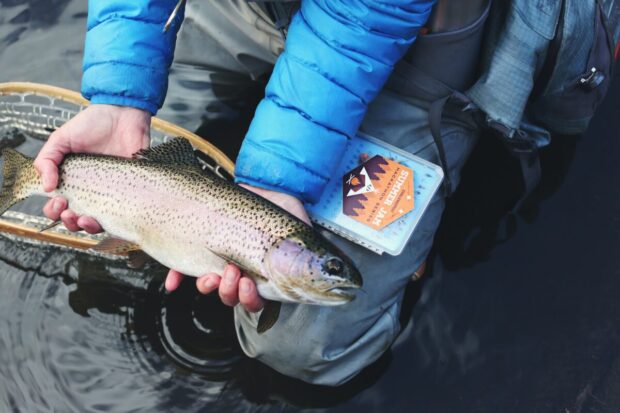Many anglers use plastic worms to bait their bass fishing lure, and for good reason. They are easy to cast, they produce a lot of action when hooked, and they are affordable. However, there are some potential drawbacks to using plastic worms.
For one, they can be difficult to clean if your fishing rod is not made out of a suitable material. Additionally, if your fishing rod is damaged or loses its grip on the worm, the worm can quickly become entangled in the fishing line and you will lose your catch.
What are Plastic Worms?

Some anglers use plastic worms to bait their bass fishing hooks. They are available in a variety of sizes and colors, and some manufacturers have created specific plastic worm baits for certain species of fish.
The main benefit of using plastic fishing worms is that they are cheap. They can be bought in bulk at most sporting goods stores or online, and they require no preparation or seasoning. Another advantage is that plastic worms do not get caught on fish hooks or lines and can be retrieved easily.
However, there are also some disadvantages to using plastic worms as bait. First, they can be tough to cast. Second, they can be eaten by fish quickly, so they must be used in areas where there is a high concentration of bass. Third, if the hook goes deep into the worm, it can be difficult to pull out without damaging it. Fourth, if the worm becomes tangled in the lines or gear, it can be difficult to free it. Lastly, if the water temperature is too cold for the plastic worms to survive, they will not work as bait.
How Do Plastic Worms Work?
Plastic worms are a great way to add some excitement to your bass fishing session. They are inexpensive and easy to use, but there are some cons to be aware of before using them.
The main downside to plastic worms is that they don’t always carry a lot of weight. This can make them difficult to hit with a regular cast, and can also cause them to drift out of the area you’re targeting. They are also not as durable as metal worms, so they may eventually break if you’re not careful.
What are the Pros and Cons of using Plastic Worms for Bass Fishing?
Pros:
- Plastic worms are cheap and easy to use.
- They can be tied in a variety of ways, making them versatile for a variety of applications.
- They are durable and will not break if they are caught on something.
- They can be thrown into the water and will swim towards the baitfish.
Cons:
- They may not be as durable as other types of worms.
- They may not attract as many fish as other types of worms.
What are the Benefits of Using Plastic Worms for Bass Fishing?

One of the benefits of using plastic worms for bass fishing is that they are much easier to handle than live worms. This makes them a good choice for beginners who are trying to learn how to fish. Additionally, plastic worms are not as likely to get tangled up in the line, making them a more efficient bait. However, plastic worms do have some drawbacks. For one, they can become brittle over time and break off easily when struck by a fish. Additionally, they tend to be less effective at catching large bass.
What are the Disadvantages of Using Plastic Worms for Bass Fishing?
There are a few potential disadvantages of using plastic worms for bass fishing. First, they tend to be less durable than natural bait, so they may not last as long. Second, they can be harder to retrieve from the water, which can lead to poorer catch rates. Finally, they may produce less action than traditional bait formats, so anglers may not get as much out of their outing.
What Color of Plastic Worm is Best for Bass?

There is no definitive answer to this question as it depends on the bass’s preferences. Some bass may prefer a red or orange worm while others may prefer a green or blue worm.
If you are unsure which color worm to buy, it is best to buy a variety of different colors and test them out before settling on one.
Are Lures or Worms Better for Bass?
There are pros and cons to both lures and worms when it comes to bass fishing. Some people swear by lures, while others prefer worms. Here are the main points to consider:
Lures tend to be more visible to fish and can provide a more consistent strike. They can also be rigged with different plastics and feathers, giving you lots of options for creating different baits. Worms, on the other hand, can be used in a variety of ways, making them more versatile. They are often more sensitive to touch, so anglers can use them in areas where lures would not work. Plus, they can be put down at a more varied depth range than lures, which opens up your options for hunting bass in different areas.
Ultimately, it depends on what you want from your lure or worm fishing experience. Lures may offer a bit more consistency and visibility on the water, while worms can give you a greater range of options when it comes to setting the hook.
Conclusion
Whether you’re a novice bass fisherman or an experienced pro, there’s no doubt that using plastic worms can be a big help when it comes to catching fish. However, like anything else in life, there are also some potential cons to consider before jumping right into the worm fishing pool. In this article, we’ll take a look at both the pros and cons of using plastic worms for bass fishing so that you can make an informed decision about whether or not they’re right for you.
